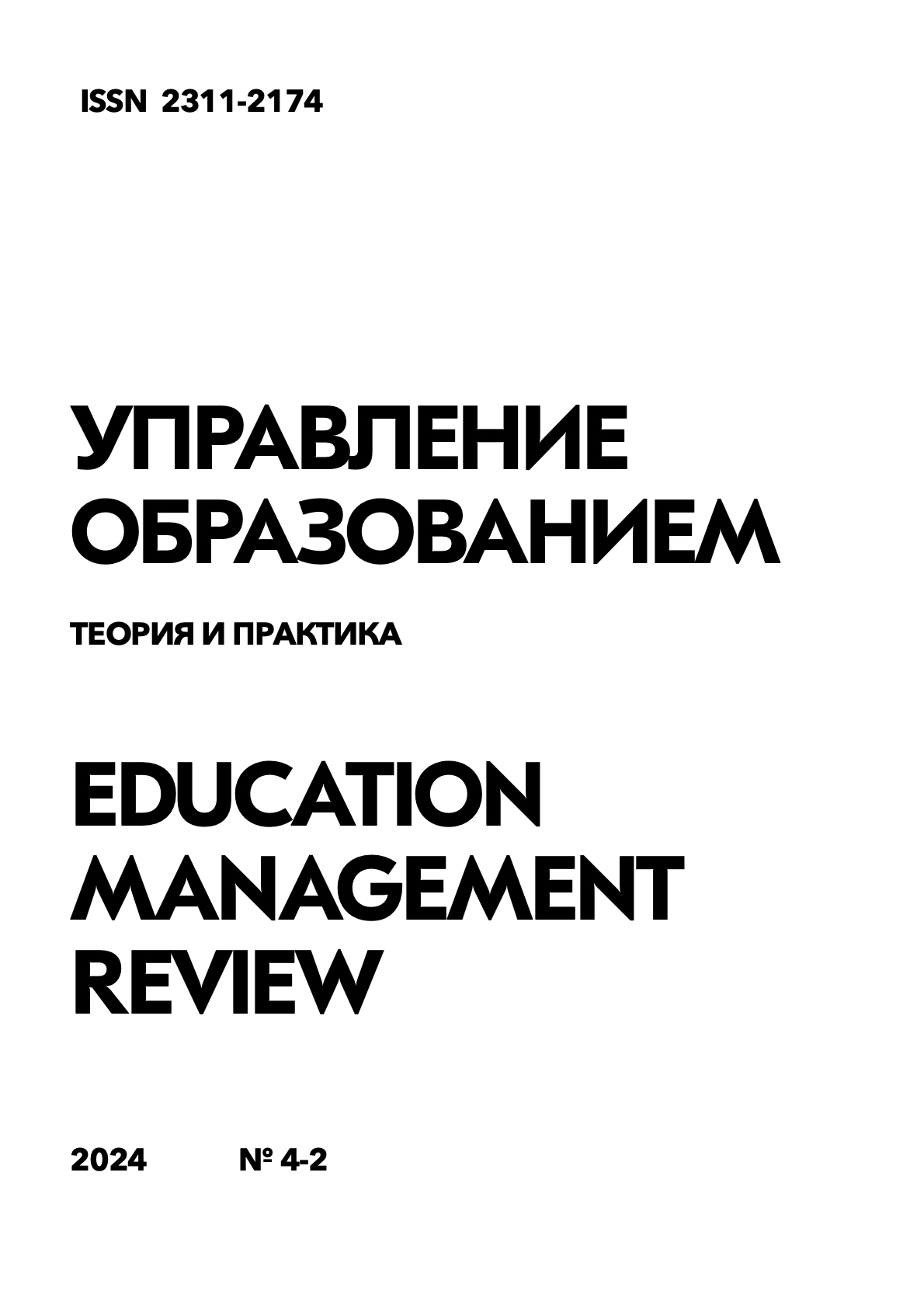Implementation of project-based learning in higher education programs
Keywords:
project training, higher education, practical training of students, key competencies, academic performance, satisfaction, employmentAbstract
The modern labor market places increasing demands on the level of practical training of young professionals. However, traditional teaching formats in universities are focused more on the theoretical component of education and do not always effectively develop competencies demanded by employers. Project-based learning as an innovative educational technology based on the principles of self-organization and independent work of students on real practical tasks can become an effective tool for solving this problem. The purpose of the study was to analyze the effectiveness of introducing elements of project-based learning into classical higher education programs in order to maximize the practical training of students and the development of their key skills. The priority areas for the implementation of project-based learning have become natural science and technical specialties, where practical competencies are crucial for the future professional activities of graduates. The results of a survey of 200 students and 20 teachers of three universities, as well as statistical data on academic performance, student satisfaction and employment of graduates over the past 5 years were used as materials for the study. The results showed an increase in the quality of students' knowledge, motivation and independence, as well as better job search rates among graduates of programs with elements of project-based learning.
References
Бурыкина М. Ю., Данилова Т.В., Тонких А.П. Инновационная культура будущего педагога как проблема профессиональной подготовки // Управление образованием: теория и практика. 2022. № 6(52). С. 38-54.
Горбунов Д.В., Нестеров А.Ю. Технологическое будущее России: вызов «третьей природы» // Вестник Самарского университета. Аэрокосмическая техника, технологии и машиностроение. 2017. Т. 16. № 4. С. 60-71.
Кричевский С.В. Эволюция технологий и технологических укладов в парадигме «зеленого» развития и глобального будущего // НАУКА ТА НАУКОЗНАВСТВО. 2015. № 2. С. 73-79.
Лапыко Т.П. Метод проектов как способ поиска, поддержки и сопровождения талантливой молодежи в вузе // Образование как фактор развития интеллектуально-нравственного потенциала личности и современного общества: мат. VII Межд. науч. конф. (09-10 ноября 2017 г., Санкт-Петербург). Отв. ред. М.И. Морозова. СПб.: Ленинградский государственный университет им. А.С. Пушкина, 2017. С. 271-274.
Лапыко Т.П., Комарова С.В. Конкурсы профессионально-педагогического мастерства будущих педагогов // Управление образованием: теория и практика. 2023. № 9(67). С. 158-165.
Лепский В.Е. Рефлексивно-активные среды инновационного развития. М.: Когито-Центр, 2010. 255 с.
Лидер А.М., Слесаренко И.В., Соловьев М.А. Современный опыт инженерно-технической подготовки в ведущих зарубежных университетах // Университетское управление: практика и анализ. 2021. Т. 25. № 1. С. 18-34.
Малькина О. В., Данилова Т.В., Курачева Л.Г. Развитие ресурсного личностного статуса «Я – профессионал» у будущих педагогов:проблемы и пути их решения // Новое в психолого-педагогических исследованиях. 2022. № 1(64). С. 95-104.
Плигин А.А. Целенаправленное развитие познавательных стратегий школьников. М.: Издательство Московского психолого-социального университета, 2021. 152 с.
Пучков М.В. Генетические аспекты формирования архитектурных прототипов и пространственных моделей научно-образовательных комплексов // Архитектон: известия Вузов. 2021. № 2.
Райхельхаус Л.Б. Устойчивость образовательных результатов как новый принцип современной дидактики // Ярославский педагогический вестник. 2019. № 4(109). С. 8-14.
Ставицкий А.В., Ашавский И.Г., Волков Д.В. Разработка курса для обучения современным облачным технологиям // Открытое образование. 2018. Т. 22. № 6. С. 39-50.
Тонких А. П. Проектная деятельность в курсе обучения математике будущего учителя начальных классов: компетентностный подход // Вестник Брянского государственного университета. 2017. № 2(32). С. 286-292.
Novikova N.N., Mironov V.V., Kitaygorodskiy M.D., Poberezkaia V.F. Realities and prospects of digital transformation of additional education for children in Russia // International journal of early childhood special education. 2021. V. 13. № 2. pp. 1164-1173.
Ainamo A., Pikas E., Mikkela K. University ecosystem for student startups: A «platform of trust» perspective. Eds by M.E. Auer, T. Rüütmann // Educating engineers for future industrial revolutions. ICL 2020. Advances in intelligent systems and computing. 2021. Vol. 1329. Springer, Cham.
Dannenberg S., Grapentin T. Education for sustainable development – learning for transformation. The Example of Germany // Journal of futures studies. № 3(20). рр. 7-20.
Jacobides M.G., Cennamo C., Gawer A. Towards a theory of ecosystems // Strategic management journal. 2018. Vol. 39. Iss. 8. pp. 2255-2276.
Kumar S., Paray Z.A., Sharma N., Dwivedi A.K. Influence of entrepreneurship education and university ecosystem on individual's entrepreneurship readiness // Entrepreneurship and regional development. Cham: Palgrave Macmillan, 2021. рр. 305-322.
Panychev A., Pokrovskaya, O. The third-generation university ecosystem in the context of global digitalization. Eds A. Manakov, A. Edigarian // Mat. of Inter. scien. siberian transport forum TransSiberia-2021. Lecture notes in networks and systems. 2022. Vol. 402. Springer, Cham.
Spencer-Keyse J., Luksha P., Cubista J. Learning ecosystems: an emerging praxis for the future of education. School of management SKOLKOVO & Global Education Futures. https:// learningecosystems2020.globaledufutures.org
Voino L.I., Krylova L.A., Shuverova T.D., Shakhova V.A. et al. The involvement of university lecturers as tutors to support high school individual projects // Edulearn18. 2018. рр. 11091-11099
Downloads
Published
How to Cite
Issue
Section
License

This work is licensed under a Creative Commons Attribution-NonCommercial-NoDerivatives 4.0 International License.




